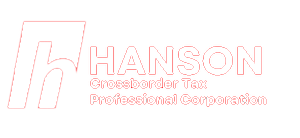CRA looking for Canadians who own U.S. real estate
Don’t look now but there may soon be a lot of work for tax lawyers and accountants who are needed to represent clients with voluntary disclosure. On June 25, the Canada Revenue Agency issued a Request for Information (RFI) for Bulk United States (U.S.) Real Property Data (re Canadian residents). What does that mean? The long answer is that the CRA is inviting vendors of bulk data to participate in an information-gathering exercise on industry best practices concerning the collection and delivery of data pertaining to real property owned in the U.S.
The short answer is that this will identify Canadians who own or have owned U.S. real estate and make sure they comply with Canadian income recognition and tax-reporting requirements.
Canadians owning U.S. real estate should consider revisiting their tax returns for the past six years – from Jan . 1, 2014, onward – to make sure they are properly reporting such real estate to the CRA. The agency has become creative in pursuing Canadian tax residents who are shirking their reporting obligations around ownership of foreign property.
The fine details
The June 25 announcement says the CRA is looking to collect data on “U.S. real estate and real property data where a Canadian resident is the owner or party to the purchase, sale or transfer.” It may also look into unreported rental income earned by Canadians owning U.S. real estate, not to mention the sale of U.S. residential properties by Canadian taxpayers to make sure capital gains are reported.
The RFI describes how the data collected will serve to “enhance the CRA’s ability to administer tax programs, to enforce the various sections of the (Income) Tax Act in order to protect Canada’s revenue base, and to support the CRA’s business and research process.” That means the CRA is gearing up for audits related to U.S. real properties owned by Canadians.
Who is impacted?
To maintain the integrity and fairness of the Canadian tax system, Canadians who own U.S. real estate and generate rental income from these properties must report and pay tax on said income. Fortunately, there is a foreign tax credit for taxes paid on rental income in the U.S. In addition, U.S. real property owned for purposes other than entirely or primarily personal use (more than 50 per cent is personal use) must disclose such property on an annual Form T1135 Foreign Income Verification Statement if it meets the reporting threshold based on its cost.
The cost basis threshold is at least $100,000 and applies to U.S. “income-producing” real estate as well as other “specified foreign property.” Examples of specified foreign property include financial instruments held with a non-Canadian broker or non-Canadian financial instruments (e.g., securities) held with a Canadian broker, investment in non-Canadian partnerships, foreign bank accounts, debt held by non-residents of Canada, etc.
If this sounds complicated, it can be and that is why it’s important to engage a tax professional who knows what he or she is doing.
The potential for penalties
Canadians who own U.S. real estate face significant penalties for not filing Form T1135, or not filing in a timely manner. The penalty is based on whether there was intention to deceive the CRA or it was an honest mistake. Obviously, honest mistakes cost less. If a Canadian taxpayer has no idea of their U.S. real estate reporting obligations, the penalty for failing to file properly is $25/day for up to 100 days, with a minimum of $100 and maximum of $2,500.
However, taxpayers who intentionally fail to report eligible U.S. real estate face a penalty of $500/month up to 24 months, with a maximum of $12,000 less any penalties already paid. Those who intentionally make false statements on their Form T1135 face a potential penalty of $24,000 or five per cent of the cost of the foreign property in question – whichever is greater. In addition, tax on under-reported net rental income is subject to penalty and interest for late payment.
Act now for amnesty
The CRA is willing to give Canadians who own U.S. real estate a chance to come clean and make amendments before their indiscretions are uncovered through audits. The CRA’s Voluntary Disclosure Program allows non-compliant taxpayers to go back and correct previously filed returns and/or file returns that should have been filed and were not. In most cases, there will still be taxes owing and perhaps interest. But this program can offer relief from serious penalties.
Are you a Canadian who owns U.S . real estate? Then now is the time to work with your tax professional to make sure you have been compliant or explore the Voluntary Disclosure Pro gram . Anything else may be very costly.
This article was originally published by The Lawyer’s Daily (www.thelawyersdaily.ca), part of LexisNexis Canada Inc.
Where to find us
4-209 Speers Road
Oakville, ON, L6K 0H5
Canada
Contact Us
Meetings are by appointment only.
Phone: +1 855 640 1730
Local: +1 905 845 1194
Fax: +1 833-203-9641
Email: mail@hcbtax.com




